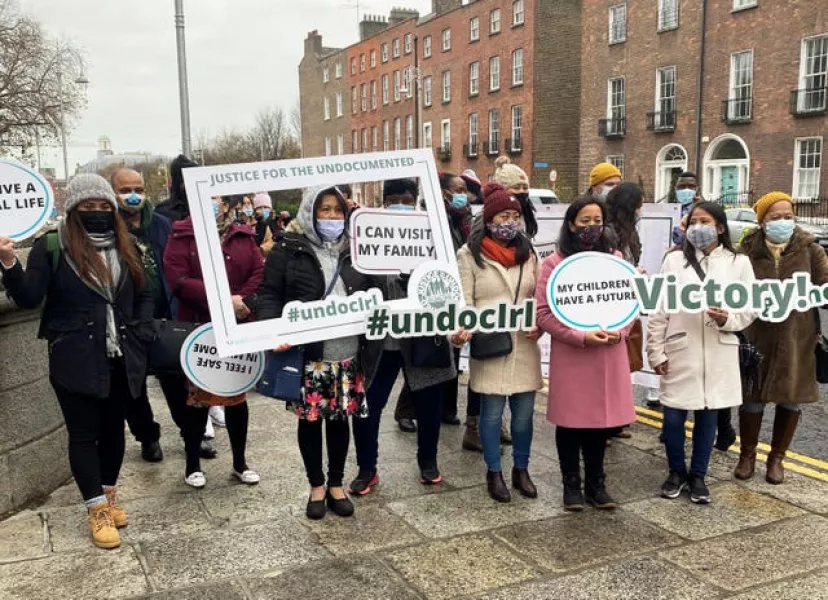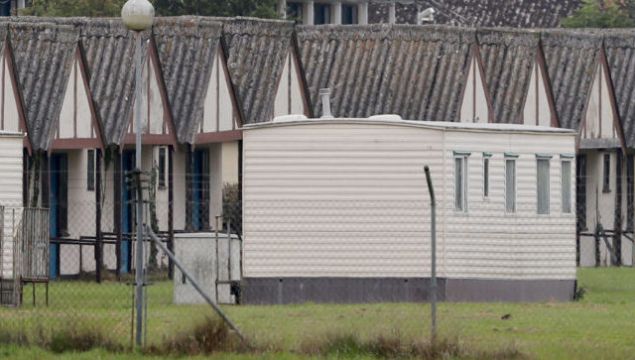The Government must develop a strategy to tackle Covid-19 disinformation among migrant communities, an Oireachtas committee has heard.
Brian Killoran, chief executive of the Immigrant Council of Ireland, told the Joint Committee on Children and Equality that there were “deficiencies” in the provision of health and vaccine information to migrant communities.
“This issue is not just one of information, but of challenging disinformation within sections of migrant communities,” he told TDs and senators.
He called for a Government strategy that “directly engages migrants at grassroots levels, with migrant-led organisations, leaders and migrant-relevant media being targeted to address the shortfalls in the communication strategy of the last two years”.
The issue is just one of many facing migrant communities in Ireland, TDs and senators heard on Tuesday.
The committee meeting came only days after the Government announced a new scheme that will allow up to 17,000 undocumented people, including up to 3,000 children, to live in Ireland and regularise their residency status.
The scheme will open to all undocumented migrants who have spent four years living in the country without an immigration permission, or three years in the case of those with children.
Mr Killoran called it an “incredibly important thing for Ireland to do”.
But he said: “Undocumented migration is just something that is an element of every immigration system in the world.
“The fact remains that, 12 months after the scheme, undocumented migration will still be an issue for some in Ireland.”
He said the country needed to think about how it can, into the future, keep bringing undocumented migrants back into the immigration system.
Politicians heard that longstanding problems within the Irish immigration system had only been worsened by the pandemic.

Sister Breege Keenan, project lead at Crosscare Refugee Services, told the committee that staff in all state bodies require inter-cultural training to ensure that they are able to work with people from all backgrounds.
She also said that interpreting services need to be “readily” available to anyone accessing state agencies, and said the move online of many services had posed difficulties for some migrant communities.
“To give an example – a refugee received a phone call from an official who told her quite simply ‘If you found a job and were working you would not be depressed’.”
Sister Keenan said the Department of Justice and local councils do not appear to employ interpreter services, and the charity had seen evidence of families being split across emergency accommodation.
She called the latter development “concerning”.
The lack of interpretation resources was described as a recurring issue for people coming to Ireland, with both charities pointing to the need to learn from other countries and to encourage universities to offer degrees or diplomas in interpretation services.
“What we find is that there are quite a number of interpretative companies but there’s absolutely no training, and there’s nothing worse than to have an interpreter on the phone and you know they’re probably standing in a shopping centre, or they’re walking down the street, and you’re sitting with a woman that might be the victim of domestic violence,” Sister Keenan said.
Green Party TD Patrick Costello, who chaired the meeting, queried whether there was a danger that making interpretation services subject to a diploma or degree could “freeze” some people out of roles.
Both charities said that it was important to learn how other countries, with longer migration histories than Ireland, handle the issue.
Mr Killoran said that the closure of the Burgh Quay registration office in Dublin during the pandemic, as well as the closure of other offices across Ireland, continues to be an issue.
“Our services have seen people who have lost their job as their card had expired and their employer did not understand the situation.
“We have seen people interview for roles that they were successful in getting but could not take up as they could not convince an employer of the nature of their legal residence without a card.
“We have seen, repeatedly, people go to social welfare offices and be asked to produce a valid and in-date certificate of registration – something which it was impossible for them to do through no fault of their own. ”
He also lamented the “overly bureaucratic and paper-based nature of many of our immigration processes”.
Mr Killoran repeatedly said that many of the issues were administrative and could be solved without legislation or major reforms.
Too much of the system, he warned, relied on ministerial discretion.

“The introduction of appeals processes, as a regular occurrence within the immigration system, would deal with a lot of issues,” he told the committee.
“I think a lot of our immigration system was set up in the early 2000s when it was a high emphasis on rooting out fraud.
“I think that governing principle of taking every available opportunity to root out fraud does not translate at all into massive levels of detection of fraud.”







